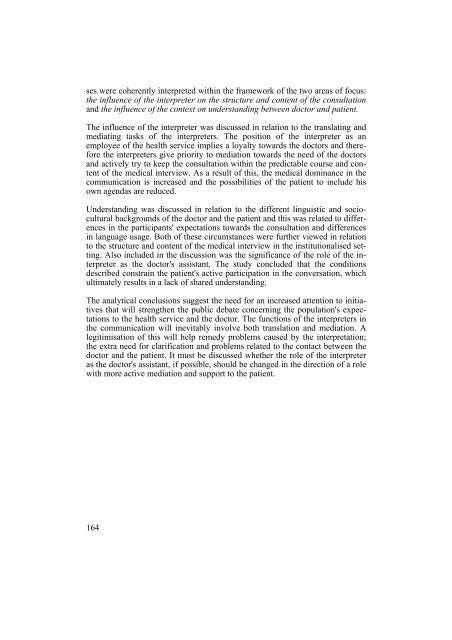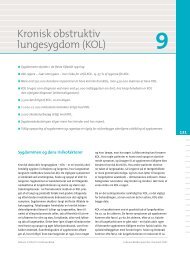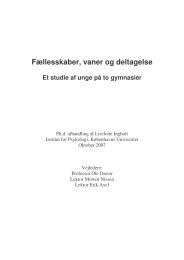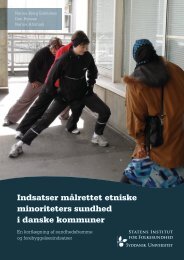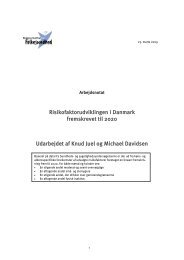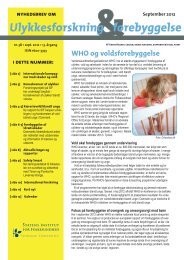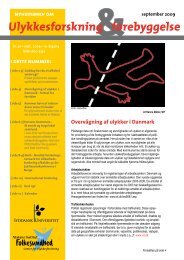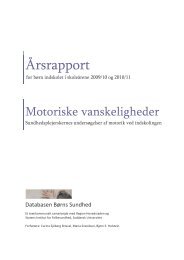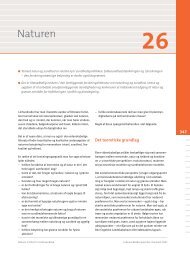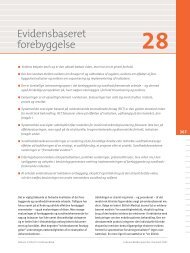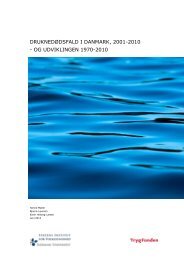Download pdf-fil - Statens Institut for Folkesundhed
Download pdf-fil - Statens Institut for Folkesundhed
Download pdf-fil - Statens Institut for Folkesundhed
Create successful ePaper yourself
Turn your PDF publications into a flip-book with our unique Google optimized e-Paper software.
ses were coherently interpreted within the framework of the two areas of focus:<br />
the influence of the interpreter on the structure and content of the consultation<br />
and the influence of the context on understanding between doctor and patient.<br />
The influence of the interpreter was discussed in relation to the translating and<br />
mediating tasks of the interpreters. The position of the interpreter as an<br />
employee of the health service implies a loyalty towards the doctors and there<strong>for</strong>e<br />
the interpreters give priority to mediation towards the need of the doctors<br />
and actively try to keep the consultation within the predictable course and content<br />
of the medical interview. As a result of this, the medical dominance in the<br />
communication is increased and the possibilities of the patient to include his<br />
own agendas are reduced.<br />
Understanding was discussed in relation to the different linguistic and sociocultural<br />
backgrounds of the doctor and the patient and this was related to differences<br />
in the participants' expectations towards the consultation and differences<br />
in language usage. Both of these circumstances were further viewed in relation<br />
to the structure and content of the medical interview in the institutionalised setting.<br />
Also included in the discussion was the significance of the role of the interpreter<br />
as the doctor's assistant. The study concluded that the conditions<br />
described constrain the patient's active participation in the conversation, which<br />
ultimately results in a lack of shared understanding.<br />
The analytical conclusions suggest the need <strong>for</strong> an increased attention to initiatives<br />
that will strengthen the public debate concerning the population's expectations<br />
to the health service and the doctor. The functions of the interpreters in<br />
the communication will inevitably involve both translation and mediation. A<br />
legitimisation of this will help remedy problems caused by the interpretation;<br />
the extra need <strong>for</strong> clarification and problems related to the contact between the<br />
doctor and the patient. It must be discussed whether the role of the interpreter<br />
as the doctor's assistant, if possible, should be changed in the direction of a role<br />
with more active mediation and support to the patient.<br />
164


